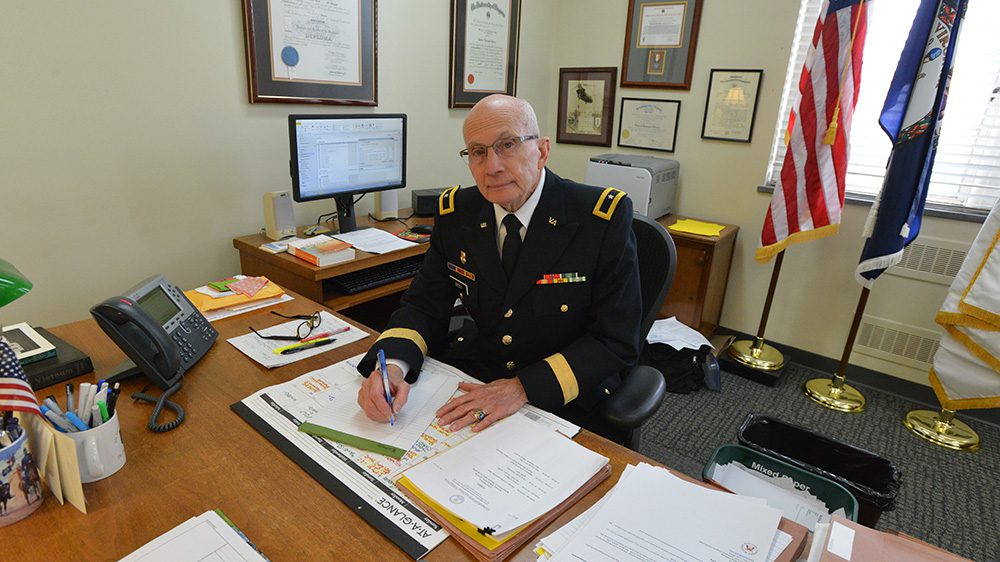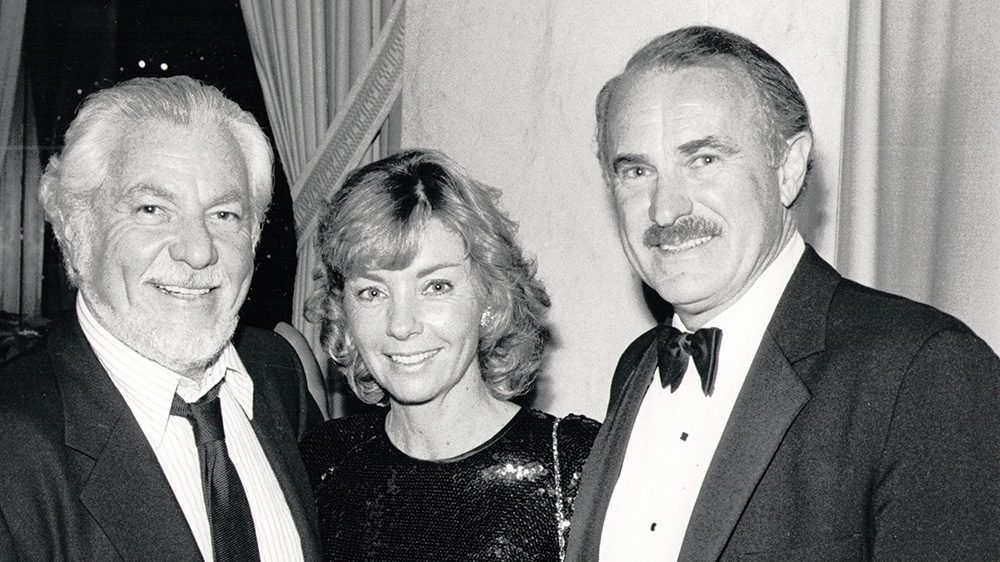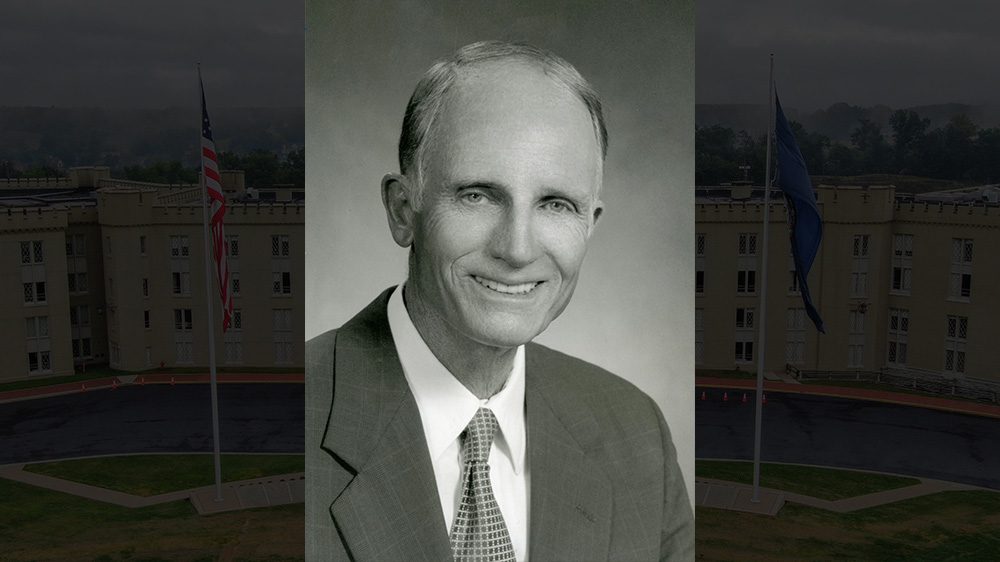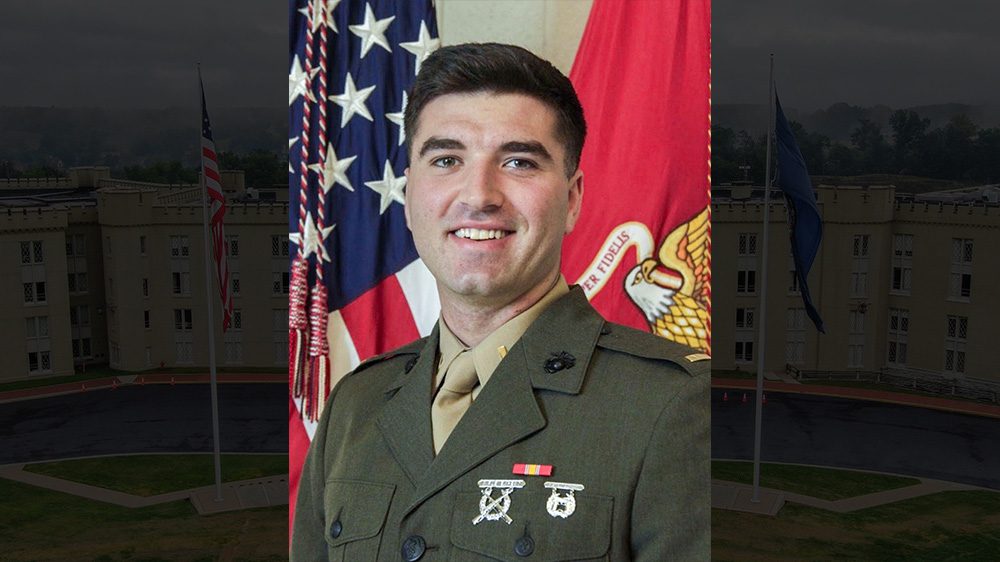Brig. Gen. Robert L. Green ’67, who served as VMI’s deputy superintendent of finance, administration, and support from 2000–16 and acting superintendent from December 2002–June 2003, died Sept. 10, 2023, in Williamsburg, Virginia. He was 78.
Matriculating from Portsmouth, Virginia, Green played football for two years and was a cadet lance corporal in his 3rd Class year. A civil engineering major, he “made an impressive mark in [the] C.E. curriculum,” according to his history in the Bomb. During his 1st Class year, for example, he won a technical paper competition conducted by the Virginia branch of the American Society of Civil Engineers.
His performance earned him a job offer as an assistant civil engineering instructor in March 1967. He proved a success in the classroom. Then-Col. John W. Knapp ’54, who was head of the civil engineering department at the time and would later serve as VMI’s 12th superintendent, wrote about Green, “His preparations are meticulous and well-prepared, his delivery enthusiastic, and his overall performance both competent and dedicated.”
In May 1968, Green, who was a Distinguished Military Graduate, began training as an officer in the U.S. Army’s Corps of Engineers. He spent a year in Vietnam as a combat engineer with 1st Engineer Battalion, 1st Infantry Division and received the Army Commendation Medal and two awards of the Bronze Star for his service.
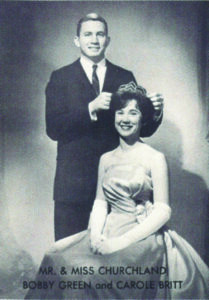
Green with Carole Britt (Green) as Mr. and Miss Churchland in their high school yearbook from Churchland High School.
Returning home, he received his master’s degree in civil engineering from the University of Virginia, and, afterward, was an instructor at VMI during the 1971–72 academic year. He then joined Wiley|Wilson, a Lynchburg-based architectural and engineering company. He became a partner in 1982 and the firm’s president in 1987. From January–May 1988, he held the Wachtmeister Chair in Physical Sciences as a visiting professor of civil engineering at VMI.
A professional engineer in four states and the District of Columbia, Green was a member of numerous professional organizations, including the ASCE, the American Water Works Association, and the American Public Works Association.
In 1997, the loyalty that once drew him back to the Institute as an instructor and to serve as the VMI Alumni Association Lynchburg Chapter president prompted Green and his, wife, Carole, to return to post. Intent on ensuring the success of VMI’s assimilation of women, they would, as Carole once put it, “ride to the sound of the guns.” He became acting director of cadet life, and she joined the VMI Assimilation Committee. Both made many contributions to the successful development and execution of the plans for the admission of women.
In early 2000, Green became post engineer and, later that year, the deputy superintendent of finance, administration, and support. He played an undeniably important role in the massive overhaul of the Institute’s infrastructure and improvement of its operations and financial condition. He supervised the construction of Third Barracks, Marshall Hall, and the Corps Physical Training Facility; the renovation of several buildings, including Crozet Hall, Maury-Brooke Hall, Nichols Engineering Building, and Cocke Hall; and the redevelopment of North Post as the Military and Leadership Field Training Grounds.
His responsibilities also included Post Police, Auxiliary Services, treasurer, Physical Plant, human resources, and comptroller. Responsible as well for the VMI Museum System, Green supervised the acquisition of the Stonewall Jackson House. He led a government relations team that strengthened VMI’s relationships with the executive and legislative branches of state government. He also was the chairman of the NCAA Athletics Oversight Committee, the Threat Assessment Team, and the Violence Prevention Committee.
Gen. J.H. Binford Peay III ’62, superintendent emeritus, described Green as “an invaluable leader and teammate whose superb work across many domains ensured much of the success of Vision 2039.” He continued, “Under Bob’s leadership, governmental relations, the full spectrum of business operations, and our ambitious construction plan produced outstanding results.”
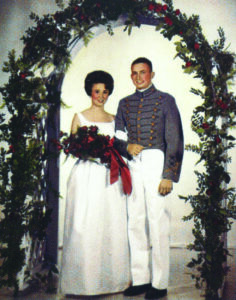
Green and Carole at Green’s Ring Figure dance in 1965.
Both James E. Rogers ’67 and Hugh M. Fain III ’80 served as president of the VMI Foundation during Green’s tenure at the Institute, and Rogers was a member of the VMI Board of Visitors, as well. Working closely with Green, they saw the many positive effects he had on the Institute and the Corps of Cadets. “Bob was one of the Institute’s greatest sons and always provided a steady and unflappable voice of reason,” said Fain. “His calm demeanor and strong leadership instilled confidence everywhere he went. Bob’s skills in engineering, finance, and management and his dedication to duty and mentoring led to a truly remarkable career in business and, fortunately for VMI, a second equally remarkable career in higher education administration.”
Rogers described Green as the “wingman” for two superintendents—that is “someone others can count on to get the job done.” The Institute’s successes from the late 1990s until 2016, according to Rogers, owe much to Green, who “was not just a ‘wingman’ on many of these projects. He was out front, leading the way.”
Such was Green’s intricate knowledge of the Institute’s workings and his reputation for professional competence and wisdom, Rogers stated, “as the president of the VMI Foundation, I made few decisions without checking with Bob first.” He was not alone in doing so, said Rogers; many on post did “because they wanted to make sure they were doing the right thing.”
The Institute presented Green with its Meritorious Service Medal when he retired. The resolution that accompanied the award stated, “His work ethic and wisdom has been an invaluable service to VMI. … He has been the consummate professional and a credit to the Institute, the Commonwealth, and the Nation.”
He is survived by his wife, Carole. She was the VMI Alumni Association vice president of alumni activities from 1999–2016. Carole worked with numerous classes and chapters coordinating events on and off post. Green once joked that she knew more alumni than he did. Such was her dedication and service that, in 2010, the VMI Alumni Review noted, “What began as Bob’s school is now as much Carole’s. … Both have touched the lives of [cadets] and alumni and the Institute itself.”
Fittingly, in 2016, the Class of 1967 established the Robert L. and Carole B. Green 1967 Scholarship “in honor of the many contributions of Bob and Carole Green to the advancement of the Virginia Military Institute.” It provides need-based aid to cadets who are majoring in engineering or economics and business and has been awarded 16 times since 2019.
Few people who dealt with the Greens did not come away thinking themselves better for it. Peay summed up what many undoubtedly experienced: “We grew together as special friends, and the memories of our time together will always be the best.”
Besides Carole—who was his Ring Figure date in 1965—Green is survived by his sister, Linda G. Bashford; niece, Kelly Collins; and many friends.
